Human Automation -The benefits or detriments of habits part 3
The Habits That Control Our Lives

The "habit loop" is a neurological cycle that governs every unconscious behavior. It consists of three basic parts: the cue, the routine, and the reward. The cue is the thing that triggers the action. The routine is the set of actions that take place due to the cue. The reward is the prize that is awarded for successfully completing the loop. When a habit is repeated enough times, anticipation is created for the reward and every time the cue is present, a craving will emerge. If, for example, you were to eat a meal with some friends and afterward, they went outside for a smoke, it would only take a handful of times of you joining them before the association of food and cigarettes become synonymous. You will start to crave the cigarette after a meal in hopes for that delicious reward of lung cancer… well, okay… maybe the cancer isn’t the reward, but it sure is the end result. In any cases, It will become increasingly more difficult to break the routine once it’s formed into a habit because it will feel more natural to smoke after eating than it would not to. This kind of behavior is fairly typical in the party scene, especially with people that claim to only smoke and drink at parties. In this scenario, the habit is triggered by parties, rather than by food, but the result is the same. The energetic scene triggers the response to drink and smoke, when they typically wouldn't in any other environment. Fast food restaurants utilize this concept. They intentionally, manufacture all of their chains to look and work identically to each other. Their food is designed to deliver a sizzling and immediate flavorful burst in your mouth when you bite into your meal. The fries are fresh and hot and the salty juices that flow into your mouth, serve as the reward. After a couple times of eating at a fast food restaurant, the brand name (or in some cases the golden arches,) will subtly remind you of the reward you could be experiencing. All you have to do is go there and order the sizzling fries and that reward will come to you. Even if you typically don’t like fast food, or you are trying to maintain a healthy lifestyle, once you’re hooked you’re done. The only way to break the vicious cycle after you’re in it, is to find something else that can fulfill that reward. Aside from that, your only other hope is to be scared straight (ie. all of the people who laid off of the burgers and fries after seeing the documentary “Super Size Me.”)
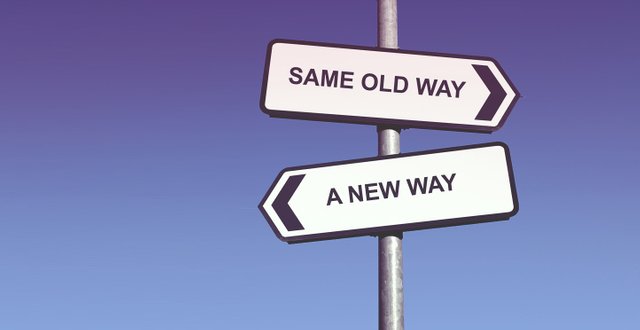
After your cell phone makes a tone, how likely are you to look at in less than ten seconds? If it is a text message and you are driving, would you answer immediately, or could it wait for the next stop? Usually, waiting for a few moments to respond to the beep on your phone isn't going to make or break anything, but the likelihood that your distracted driving could in fact cause an accident is staggering. The National Safety Council reports that “cell phone use while driving leads to 1.6 million crashes each year. Nearly 330,000 injuries occur each year from accidents caused by texting while driving. 1 out of every 4 car accidents in the United States is caused by texting and driving.” The risk versus reward is as plain as day. There is no reason to reach for your phone while you are in the driver’s seat unless you are shifted down to park. Unless you are a doctor on call, or you are waiting on time sensitive information, there is almost never a reason to pick up your phone with that kind of urgency. Even in those situations, there’s usually the option of pulling over to the side of the road to address it. For most people though, stopping what they are doing and checking their messages or email, even if it's potentially dangerous to do so, seems to take priority. The tone on the phone serves as a cue, and the reward is the satisfaction of receiving a message. It’s really not a good habit, but it sure is a common one.
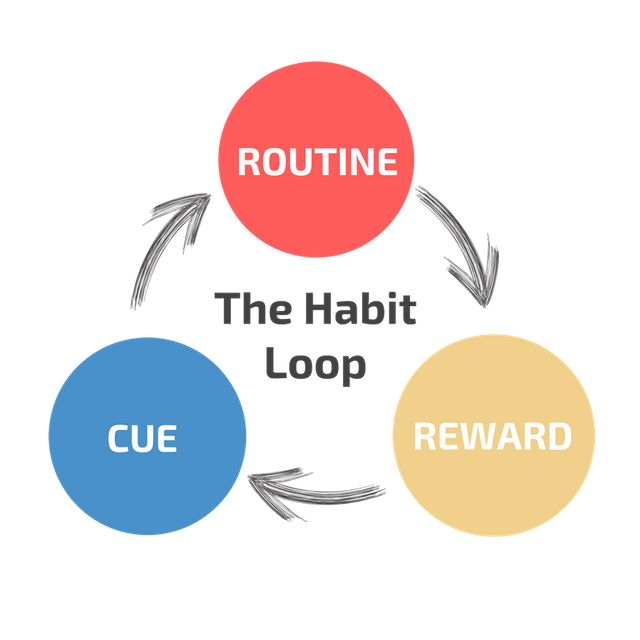
Habits are not inherently good or bad, they’re just the result of behaviors that are repeated over time. Once they are established, they create the impulse to continue behaving as you did when you formed them, even if the risk exceeds the reward. People that hurt themselves every day aren’t doing it because they are masochistic, they’re just following what feels natural to them. Furthermore, from their perspective, it might not even appear that they are doing anything wrong. From the smoker’s perspective, they are just doing what they have been for doing. Smoking cigarettes, to them, is no more out of the ordinary than eating a bowl of cereal for breakfast. Sure, it’s not healthy, but what is? Besides, why would anyone give up smoking when they have cute little phrases like “Ya gotta to die from something.”
Obviously, I’m being facetious, but let’s be brutally honest with ourselves for a moment. Smoking is bad, but so many people do it. The CDC reported that “cigarette smoking is responsible for more than 480,000 deaths per year in the United States, including more than 41,000 deaths resulting from secondhand smoke exposure.” That’s roughly one out of every five people that die annually, or 1,300 deaths that occur every day, due to cigarette smoke. Plus, research has shown that smokers, on average, die 10 years earlier than nonsmokers. Those numbers might make a good point, but seriously, I’m pretty sure it doesn’t take a trained professional to come to the conclusion that nicotine is a poor substitute for air…

Ok, I’m done picking on smokers for the moment. I’m not trying to be insensitive, but I did want to point out, what should be, the obvious. For something as bad as it is, there sure is a lot of people doing it. What’s more, is the fact that it’s not only detrimental for an individual’s health, but it’s also devastating to their wallet; $5,000 a year devastating. That’s the rational argument though, not the eye-opening one. Deadly habits like regularly smoking or drinking, aren’t habits that can be rationalized away because it’s not a lack of intellect that causes them. Mark Twain was a genius, but he was just as troubled with smoking as the next guy. One of his more humorous quotes was about his dependence. He said, “Giving up smoking is the easiest thing in the world. I know because I've done it thousands of times.” His dependence wasn’t because he was stupid or undisciplined, it was because it was so deeply rooted in his routines. Whenever he ate, he smoked. Whenever he wrote, he smoked. Whenever he smoked, he smoked. Some could say it’s really a wonder that he didn’t manage to find some way to smoke while he was asleep, but that’s beside the point. What’s most troubling is the fact that he was a highly intelligent man that was subdued to his urge to do something that can’t possibly be interpreted as being beneficial, despite his effort. If someone of his stature can be so trapped by their animalistic behaviors, what hope does the rest of us have? Luckily, it’s not as big of a deal as you might think it is.
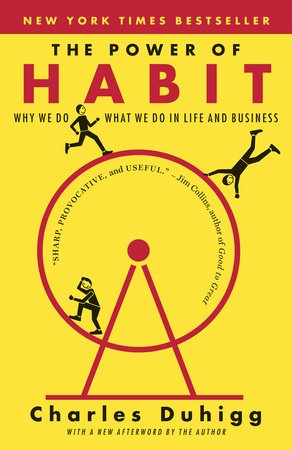
First off, cues don't need to be tones, brand names or the oily scent of french fries to be effective, they can literally be anything that makes an association. A cue could be triggered by the presence of a particular person, a set of thoughts, or thought pattern, temperature in the room, light shining through the window, or the result after an emotional response. In Eugene's case, it was the same trees and the way the houses were arranged that guided him through the impossible labyrinth of walking around the block and back to his house. For Clive, having the music in front of him and a piano to play, his fingers naturally took action to play a beautiful piece. If we want to give an example of companies and products, Kodak created an association in people’s minds that vacations equal pictures. Pepsodent revolutionized toothpaste by making brushing your teeth, tingle. Then they created the association that tingle equals clean. Almost every floor cleaner on the market makes suds when you use it, which makes the impression in people’s heads that suds equal sanitized. None of these things actually added to the benefit of the product, but they give the illusion that it does and acts as a cue to solidify a new habit to use them continuously.
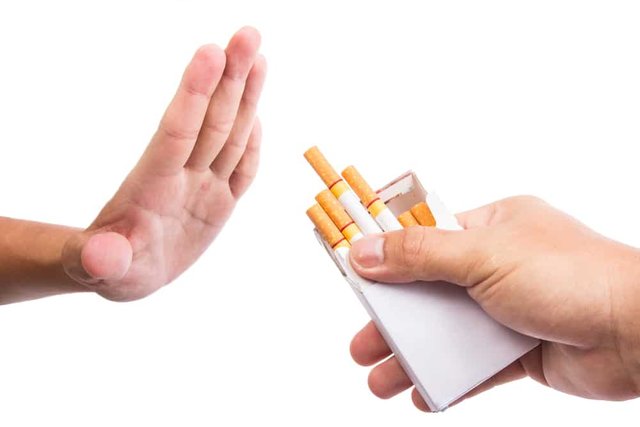
You might ask “why is all of this so important? How does that information help anyone?” Well, I want you to think about it like this: A habit is as easy to break, as it is to replace one reward with another. More specifically, if you can satisfy an urge that is being prompted by a cue, without following your old routine, you’ve successfully broken the habit. See, the key lesson here is that you aren’t trying to attack a habit dead on. You are merely reprogramming it with a new routine. So, if I wanted to give up smoking cigarettes, one way I could do this is to replace the routine of reaching for a cigarette, with reaching for something else that will satisfy the urge to smoke. For some people, chewing gum does this fairly well, others tend to eat more. That’s the number one reason that people who give up smoking have weight gain; it’s the oral fixation they are satisfying. Luckily, if you choose a non-sweetened gum, you won’t have to worry about that aspect, but changing the reward alone isn’t always powerful enough to create permanent change. In these cases, it’s important to disrupt the routine entirely.
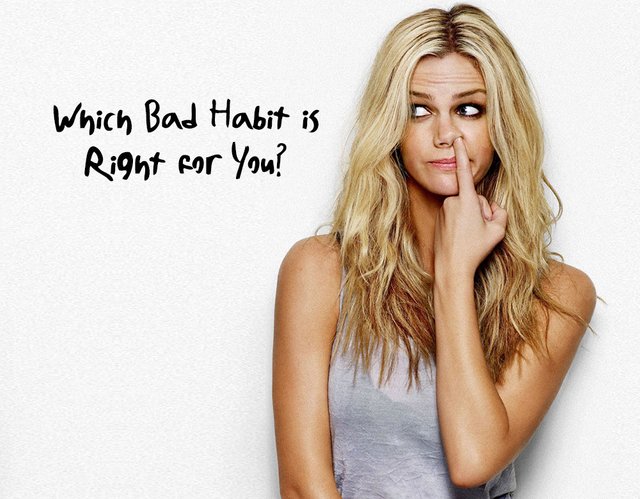
Ok, so you just got done eating, so that means it’s time to go out for a smoke, right? Well, not if you are in a smoke-free facility like a hospital, where going to a designated smoking area is a pain in the ass to get to. Exactly, that’s the point! You can’t eliminate the trigger to smoke completely, unless you also eliminate eating, but what you can do is make it as difficult as possible for yourself to fall back into an old habit. Let’s just say that someone with a gambling problem probably shouldn’t work in a casino. Think about it, you might not have the self-control to stop yourself from pulling out a cigarette after your morning pancake, but if you don’t have any cigarettes in the house, it makes it a lot harder to cheat. People don’t do really well with self-control because it’s always easier to do what’s easier. Use that to your advantage. If you are worried about breaking your diet, don’t carry money on you when you drive from work to your house and don’t buy any bad food when you go to the grocery store. Also, only go shopping on a full stomach, so that way you don’t get influenced by hunger and emotions. It sounds cheesy, but it works! Literally, any habit can be broken if you replace it with a new routine. Trust me, if you put enough contingency plans into effect, where it is hurdle after hurdle, just so you can cheat your goal, your laziness is going to work for you.
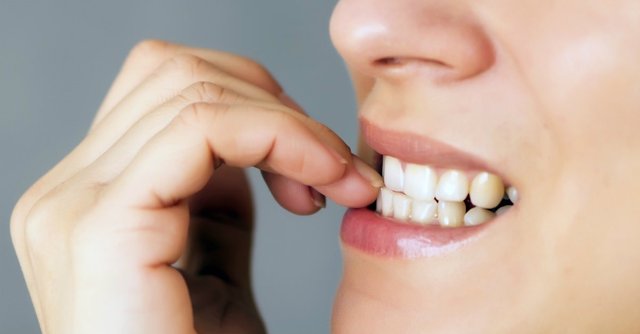
If you have the time, I highly suggest that you read the book “The Power of Habit” by Charles Duhigg. The idea behind this book is that if you understand how a habit works, you can gain power over it. Sheer will power is the technique that most people employ when trying to overcome a bad behavior, but it’s also the most ineffective. After all, when you try not to think of something, it becomes the one thing you can’t get out of your head. Therefore, when you tell yourself that you won’t do something, that’s the things you’ll end up doing. People who successfully break free from their vices, usually have a different plan. They put themselves in a position that makes failure less likely. Take myself, for example. Sometimes, I have had a hard time focusing when I’m trying to write. Some days are better than others, but on occasion, I get writer’s block. When this happens, it’s very easy to get distracted by something else. If I’m in my living room, I might wander off to the kitchen and start making food. Perhaps, I’ll even find myself playing games or noodling through on YouTube for a while. To counteract this, I started writing out in public restaurants instead of at home. I know that while I’m there, standing up and pacing around isn’t really going to be a worry anymore, nor is it really likely that I’ll walk into the kitchen to horse around either. Sure, even a public place will have their own distractions, but for me personally, it works quite well. One other thing I have a problem with is waking up. I’m sure I’m not the only person who has experienced snoozing through five or more alarms, just to get up minutes before I need to leave. It became troublesome after a while, so I took a different approach. I started setting a loud alarm on in the other room. After I did that, there wasn’t any more hitting the snooze because the snooze was a room over.

If you are serious about doing something or quitting a bad habit, you need to put yourself in a position where you don't have to rely on your self-control to succeed. You need to make it so that if you want to give up, it’s harder to throw in the towel, than it is to just follow through with the plan. When I want to wake up at a certain time, I will do whatever it takes. If I have a really loud alarm in the other room, I’m already going to get up to turn it off. When I get up to turn it off, the dog is going to wake up and is going to need to use the bathroom, meaning that I have to let her out to go pee. Five minutes later, if I really want to, I can try to coax the dog to calm down and then go lay back down, but by then, that would be more effort than just going on with my day. If I just lay in my bed after the alarm rings and leave it on, the dog is going to get up even if I don’t. Same outcome; I either just get up and do it, or deal with a loud alarm and stir-crazy dog. If I am supposed to be working on my computer and I’m at the restaurant, I could just leave if I really wanted to, but it would take more time to worry about it later, than it would be to just stay there and do what I’m supposed to do.
If you want to follow through with your goals or break a bad habit, you need to schedule for it. You have to assume that you will give up if it’s up to your own strength of will alone. Set traps, tell all of your friends to keep you accountable. Join support groups to help you out if you need to. Heck, you can even use apps like “Life Tick,” to help keep you from forgetting things that you planed on doing, or “Mint,” to help you with finances. Most importantly though, you need to know exactly what your trying to do if you want to know what exactly you are trying to plan for. I read in an article recently, that people who had a hard time exercising in the morning, suggest that you go to bed in your workout clothes. That way, if you decide that you aren’t going to do it, it’s obvious. You have to peel off your exercise wear and accept that you didn't follow through. There is no easy way out, unless you admit to yourself what you did. Not only do you want to implement things that will help you avoid giving up, but also you need more ways to help you succeed (kind of like having multiple alarm clocks going off at the same time.)
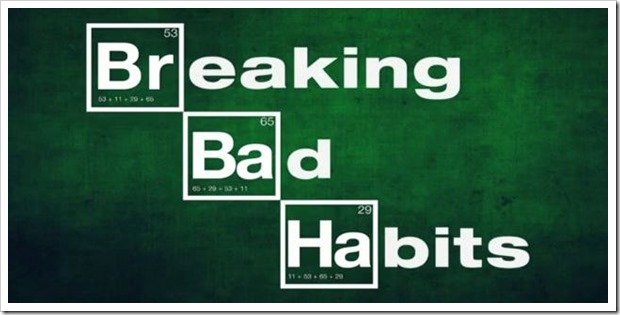
I’ve never been too keen on punishment tactics for self-correction (like snapping a rubber band against your wrist every time you mess up,) but when extreme measures call for it, they could be the last step to save you from yourself. In these scenarios, you would try to create a negative association with whatever it is that you are trying to avoid doing. It would kind of be similar to what Pavlov did with his dogs: create a reaction from the stimulus, where the stimulus is the bad habit. You make the thing you don’t want seem as disgusting as possible until you just avoid it entirely. One example I can give you is a really good tool for something like smoking. It’s pretty disgusting, but that’s kind of the point. What you do is get a big, tall, glass jug and empty it out. Then for a week, every time when you smoke a cigarette, spit into the jug and put your old butts in there as well and close it up. Once the week has passed, whenever you have the urge to smoke, open up the jar and stick your nose up to it and take a deep breath. Chances are, you are going to gag as soon as you do this because the smell will get bad pretty fast. You’ll be amazed at how quickly you will start associating cigarettes with that smell and gag reflex. Also, do some Google researches on the effects of smoking and post those pictures on your wall. Once you have successfully created a sickening feeling every time you think about smoking because you can only think of rotting lungs and the pungent odor of month old saliva and tar, you’ve won. When you can’t disassociate your behavior with the effects it causes, you feel more responsible. The best thing is that all of this is within your control as long as you’re willing to give it a shot. If you aren’t, well… you reap what you sow.
I don’t want to get too side tracked, but that whole “creating a negative association with the thing you are trying to avoid” is really powerful and probably one of your most valuable tools. Most of the reason I eat the way I do right now is because I know how bad some of the foods out there really are for you. Peanut butter cups and tiny pastries seem innocent enough when you see them in the stores, but when you know what they are doing to you on a molecular level and how much that actually screws up your body, you start looking at them way different. What once looked like adorable chocolate bunny, will start looking like poison to you. Seriously, if you have some time for just maybe a brief video, go look up something called “Why Sugar is as Bad as Alcohol.” Anyways, aside from that, one other thing that scared me straight was bingo halls. Yeah, you saw that right, but I feel like I should explain that so it makes more sense.... but not tonight... that honestly requires a part 4. for now, This post is too long, so Cya tomorrow!

fighting a habit is a very difficult process. I think first of all we need to adjust our consciousness to this work. Our mind is capable, under a certain mood for great deeds. And to overcome any habit, it will not be a big deal for him.
To listen to the audio version of this article click on the play image.

Brought to you by @tts. If you find it useful please consider upvote this reply.